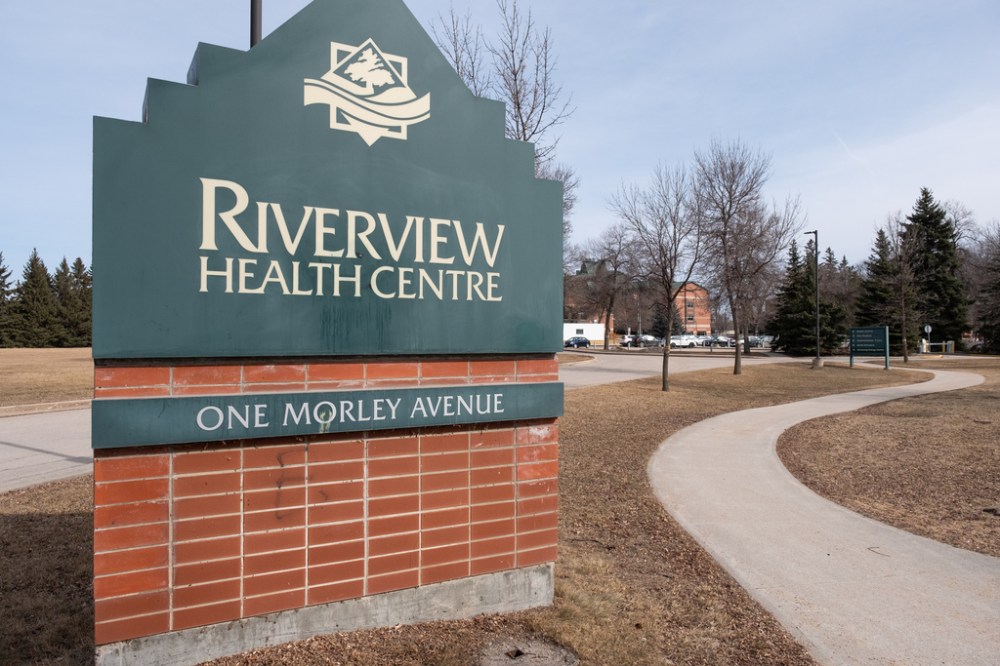‘How do you decide which child can see their dad for the last time?’ The sorrow of being unable to say good-bye in person
Read this article for free:
or
Already have an account? Log in here »
To continue reading, please subscribe:
Monthly Digital Subscription
$0 for the first 4 weeks*
- Enjoy unlimited reading on winnipegfreepress.com
- Read the E-Edition, our digital replica newspaper
- Access News Break, our award-winning app
- Play interactive puzzles
*No charge for 4 weeks then price increases to the regular rate of $19.00 plus GST every four weeks. Offer available to new and qualified returning subscribers only. Cancel any time.
Monthly Digital Subscription
$4.75/week*
- Enjoy unlimited reading on winnipegfreepress.com
- Read the E-Edition, our digital replica newspaper
- Access News Break, our award-winning app
- Play interactive puzzles
*Billed as $19 plus GST every four weeks. Cancel any time.
To continue reading, please subscribe:
Add Free Press access to your Brandon Sun subscription for only an additional
$1 for the first 4 weeks*
*Your next subscription payment will increase by $1.00 and you will be charged $16.99 plus GST for four weeks. After four weeks, your payment will increase to $23.99 plus GST every four weeks.
Read unlimited articles for free today:
or
Already have an account? Log in here »
Hey there, time traveller!
This article was published 03/06/2021 (1653 days ago), so information in it may no longer be current.
John Foster was a larger-than-life husband and father who saved two children from drowning, was the first to volunteer his time with charities, and used his ham radio to help during emergencies.
But Foster, who was surrounded by people in life, died at age 60 in Riverview Health Centre’s palliative ward on April 9, with only his wife and one of his children at his bedside because of visitor restrictions due to COVID-19.
His son waited in the parking lot for his turn to see his dad, not knowing he had taken his last breath.
What’s more, Foster’s two stepchildren — whom he had raised from ages 12 and nine during the last 24 years — couldn’t say goodbye in person. Rules issued by Shared Health to its facilities for end of life care, limits the number of visitors during a terminal patient’s last days to only four designated members, two at a time and physically distanced. The family had chosen his wife, his son and daughter, and his sister.
“How do you decide which child can see their dad for the last time?” said Foster’s grieving wife, Lori, on Thursday.
“They make you choose. You get yourself and three others and you can’t switch on, or switch off, who you choose. It was a hard decision to make.”
Shared Health statement
While we aren’t able to provide comment on a specific patient case, we are sympathetic to individuals and families who have stories such as the one you describe. We offer our deepest condolences to this family for their loss.
COVID-19 has compelled the health system to take extraordinary steps to protect patients and staff by reducing the risk of in-hospital outbreaks. Visitor guidelines have sought to strike a balance between the necessary preventative measures required to mitigate the spread of COVID-19 with our responsibility to ensure support for patients who are in our care. These guidelines were updated to include the designation of an essential care partner, which provide physical, psychological and emotional support as deemed important by the patient.
Visitor guidelines will continue to be reviewed as the pandemic evolves and more Manitobans are immunized from the virus. In the meantime, we encourage families with concerns about the care of loved ones to reach out to the appropriate facility or health region’s client relations team.
In her family’s case, the increase to four visitors, in what was believed to be Foster’s last two weeks, came too late.
“He only had three days,” she said. “He wasn’t even conscious anymore. It wasn’t a goodbye. It was too late.”
It’s why Lori says she empathizes with the family in Thursday’s Free Press story, who are currently suffering, under the same visitation rules her family faced, as their 60-year-old husband and father is in his last days at Riverview. It has been deemed he is not close enough to death to have four visitors.
Two months ago, Pat McNeil, 60, was given two to three months to live because of a terminal brain tumour, but because he isn’t believed to be within two weeks of dying, he has only been allowed one designated visitor since being admitted April 25.
“It’s just cruel,” said McNeil’s wife, Jo-Anne, earlier this week.
“It’s not like he’s 90. He is 60 and he has young daughters who still live at home. I see him and then, when I get home, I console our daughters. And then I go back the next day.”
Shared Health says the policy is in place to protect both staff and their patients, but the family still sent letters to the premier, the health minister, and the Winnipeg Regional Health Authority. The only change received was an offer, earlier this week, to add a second visitor.
Lori Foster said it was tough reading the article about the McNeil family’s situation.
“It was like reading my story all over again,” said Lori, her voice cracking.
“I really feel for them. I don’t understand why Riverview or Shared Health can’t bend the rules just a little bit. With my husband, no friends got to say goodbye to him.
“But not even my two children got to say goodbye.”
Foster owned Parkside Appliance for 31 years and volunteered for emergency services as a ham radio operator, including during 9/11. He was also the first to volunteer for charity events, even being a mascot for a children’s event and a volunteer for Fishing for a Cure.
In 1996, when Foster spotted two children struggling in the flood-swollen Sturgeon Creek, he jumped out of his vehicle and into the water. He was able to get one child safely to shore and swim out to get the other one. Foster was able to hang onto the child, and keep both of them from going into a culvert until firefighters arrived to save them both.
For his heroic actions, Foster was given a service award by the mayor and the Winnipeg Fire Paramedic Service.
The couple and their children came together as a family in 1997. John and Lori later married in 2014. He was diagnosed with glioblastoma on Aug. 9, 2020, shortly after falling down the basement stairs.
“He said he fell because the dog ran between his legs and he got a concussion,” said his wife.

“They didn’t do an MRI at the time. He just started feeling worse and worse and then one day he didn’t look good so I asked him to raise his arms and he couldn’t. I thought he was having a stroke.”
After Foster went to the hospital, Lori said she waited for a doctor or nurse to call her. Instead, it was her husband.
“He said, ‘It’s bad news. I have brain cancer and it is bad.'”
Despite surgery, as well as chemo and radiation, the diagnosis didn’t change.
“They gave him three to six months and another doctor gave him three to nine months,” she said.
“He lasted eight months.”
Almost two months after Foster died, Lori said the pandemic “is a terrible time to get ill.”
“I know I’m not alone and I know someone who never saw their mother again after they went into the hospital.
“I just wish everyone would get vaccinated.”
kevin.rollason@freepress.mb.ca

Kevin Rollason is one of the more versatile reporters at the Winnipeg Free Press. Whether it is covering city hall, the law courts, or general reporting, Rollason can be counted on to not only answer the 5 Ws — Who, What, When, Where and Why — but to do it in an interesting and accessible way for readers.
Our newsroom depends on a growing audience of readers to power our journalism. If you are not a paid reader, please consider becoming a subscriber.
Our newsroom depends on its audience of readers to power our journalism. Thank you for your support.
History
Updated on Thursday, June 3, 2021 7:03 PM CDT: Adds factbox
Updated on Thursday, June 3, 2021 8:02 PM CDT: Corrects date of marriage.







